Only one force in the world can debunk russian narratives full of lies and hatred towards Ukrainians: independent journalists and honest media. This was emphasized by the head of the Center for Civil Liberties/Nobel Peace Prize laureate, Oleksandra Matviichuk, at a meeting at the National Union of Journalists of Ukraine (NUJU).
For many years, she has been using the law to protect people, their dignity, and their freedom. However, the lawyer notes a situation where the law does not work has been going on for nine years.
“As a human rights defender, I do not have any tools to stop russian war crimes. russia uses war crimes as a method of waging war. It deliberately inflicts pain on the civilian population in order to break the resistance and occupy Ukraine, and the entire UN system cannot stop it. This is a very long tradition of impunity. russia committed terrible crimes in Chechnya, Moldova, Georgia, Syria, Libya, and was never punished for it,” the human rights activist emphasized.
Oleksandra Matviichuk stated bitterly that denial of human dignity has become part of russian culture. According to her, russians are convinced that they can do whatever they want with people. There is every reason for this statement: during the first three years of the war, Oleksandra personally collected the testimonies of people released from russian captivity. She interviewed hundreds of men and women who had gone through hell.
“People told how they were beaten, raped, stuffed into wooden boxes, tortured with electric current, had their limbs cut off, nails torn, and kneecaps broken. One woman told how her eye was taken out with a spoon,” the human rights activist said.
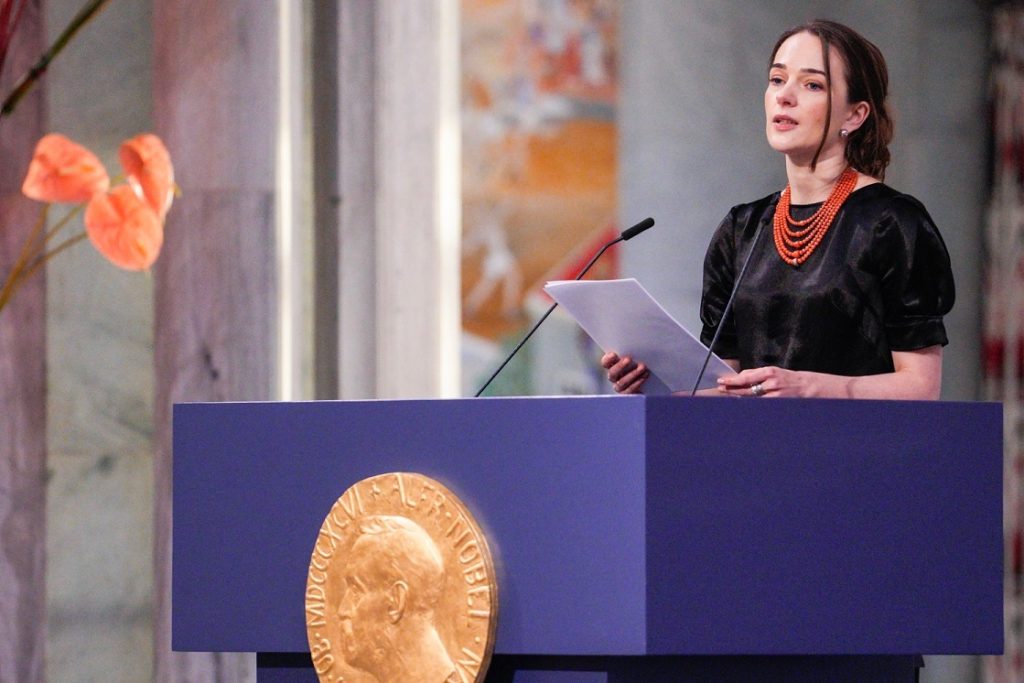
After the start of the full-scale invasion, the number of inhumane crimes increased significantly. On the website of the Tribunal for Putin initiative, which was launched by the Center for Civil Liberties together with the Ukrainian Helsinki Human Rights Union and the Kharkiv Human Rights Group, 46,000 war crimes have been documented since February 2022. However, in Oleksandra‘s opinion, this is only “the tip of the iceberg, as the number is many times higher.”
“We document not just violations of the Geneva and Hague Conventions,” she explained. “We document human pain. War turns people into figures. The number of crimes is so huge that it is difficult to tell all the stories.”
Oleksandra spoke about Illia, a boy from Mariupol who came under russian fire along with his mother. The mother only had enough strength to drag the child to the shelter. There she died in the arms of her son.
Among the almost 50,000 recorded episodes, a huge number concern children and women. Human rights activists are collecting evidence not only for the national archives but for Putin, the top leadership of russia, and all those who committed these crimes to be punished.
Ukrainians want peace, noted Oleksandra. But peace does not come when the attacked country lays down its arms. Because then it is not peace but occupation.
The Nobel laureate thinks that occupation is not just changing the national flag from one to another. The occupation is enforced disappearances, infiltration camps, torture, and rape. This is the forced adoption of Ukrainian children into russian families. These are mass deportations, destruction of Ukrainian identity, and mass burials.
“Ukrainians are fighting for freedom in all its senses,” she emphasized. “For the freedom to be an independent state, not a russian colony. For the freedom to have one’s own identity and not to re-educate one’s children as russians. For the freedom to have a democratic choice to build a society in which the rights of every person are protected, where the government is accountable, the courts are independent, and the police do not beat peaceful student demonstrations. We are now paying the ultimate price for it.”
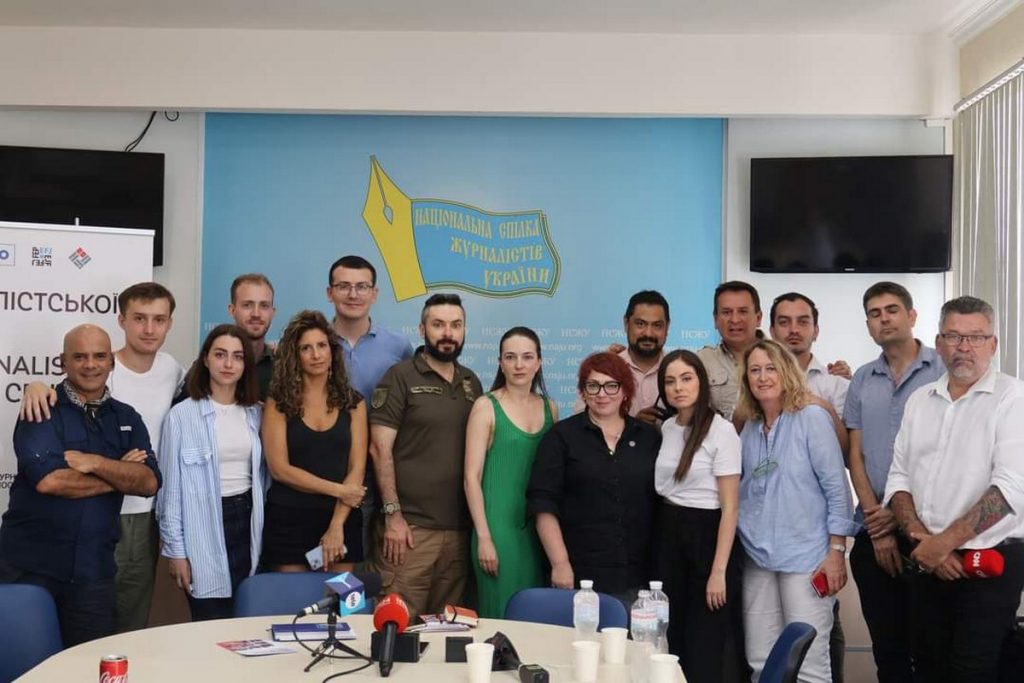
The Center for Civil Liberties, headed by Oleksandra Matviichuk, was founded in 2007. At that time, Ukraine was one of the few exceptions among the states that were formed after the collapse of the Soviet Union. In russia at that time, laws were passed on foreign agents, and civil society was persecuted. In Ukraine, the leadership elected during fair elections, which became possible after the Orange Revolution, worked.
“Our organization was founded to work at two levels at the same time: national and international,” says the head of the Center for Civil Liberties. “We understood that all the challenges we face reflect a negative trend where the legislator of these authoritarian models is russia. Therefore, we closely cooperated with human rights defenders from Russia, Poland, Georgia, and other countries to strengthen the human rights protection system at the international level.”
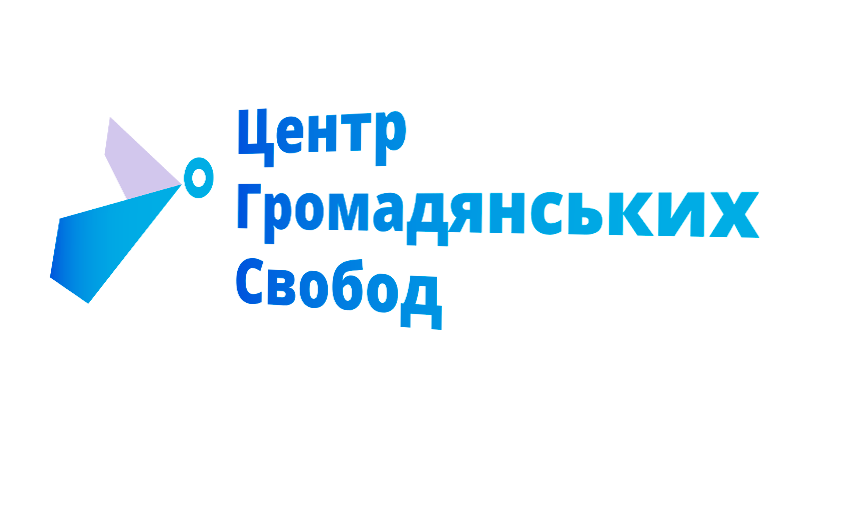
Support from the Euromaidan SOS initiative was received by hundreds of people who were beaten, tortured, and accused of fabricated criminal cases. Lawyers processed about 16,000 requests for help.
“Since then, I know that ordinary people have much more influence than they imagine. We built all further work on the mass involvement of ordinary people,” the human rights activist added.
In 2014, the Center for Civil Liberties was the first organization to send mobile groups to Crimea, Luhansk, and Donetsk regions. Since then, its members have documented war crimes and the most severe human rights violations. They do it regardless of the side of the conflict.
“For us as human rights defenders, a person whose rights have been violated is important. Therefore, I can declare with full responsibility that the vast majority of the episodes recorded by us were committed by russian troops and russian special services,” Oleksandra Matviichuk said.
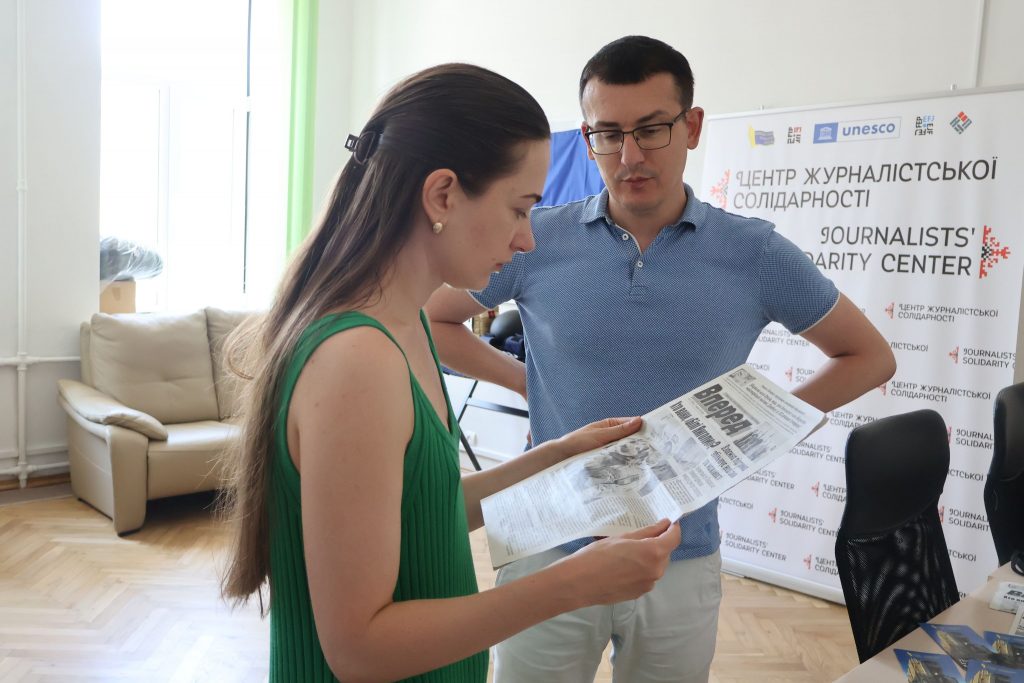
She emphasized that war crimes are a deliberate policy of the russian state.
“Human rights cannot be measured in percentages, and the violation of the rights of even one person must be investigated. Therefore, if we document such cases, our partners submit respective appeals to state authorities. And here is another huge difference,” she explains.
She added that Ukraine is on the way to building the rule of law and creating effective state institutions. But Ukrainians have all the tools for this and the chances to achieve justice. When it comes to russian war crimes, there is no legal instrument at the national or international level that would give a chance for a fair investigation and punishment of the guilty.
Oleksandra Matviichuk paid particular attention to the information dimension of the russian-Ukrainian war. She emphasized that the vast majority of reports about the so-called atrocities of the Ukrainian military are specially invented fakes spread by the russian mass media.
She gave specific examples from her practice. She interviewed a young woman from Donetsk who was captured by russia because of her pro-Ukrainian views. Even the fact that the woman was pregnant did not stop the russians.
“She was tortured,” Oleksandra continued. “She was kept in a basement room the size of a shower cabin; she was not given water or food. Once she was taken out of the cell, they began to beat her with metal rods. The woman begged to stop because she might lose the child. She was told: “Since you have pro-Ukrainian views, your child has no right to be born.”
Later, the woman was promised to be released, but under one condition: “If you tell russian journalists that you are a sniper.” Of course, she agreed.
“She was ready to say that she had arrived from Mars,” said the human rights activist. “Then they gave her the first time to wash, gave her clean clothes. She learned what she should tell the so-called Russian journalists (it was a television story, we later found it)… I was personally shocked by one detail. When those “journalists” saw that the girl was pregnant, they asked her to sit so as to hide the pregnancy. Because it ruined the whole plot.”
The given examples show that russian propaganda is part of the military machine of the russian Federation. Therefore, those who work for it cannot be called journalists. These are people who work to incite hatred and to justify the russian invasion. The lawyer assures: they should also bear criminal responsibility. This is evidenced by the Nuremberg trials of the main war criminals of the Third Reich, who were found guilty of starting and waging the Second World War, as well as the trials of those who incited the genocide in Rwanda. Oleksandra Matviichuk is convinced that there will be a Ukrainian precedent.
For this purpose, the website of the Tribunal for Putin initiative was created. It is translated into seven languages. There are collected testimonies of victims, articles by experts, and video documentaries; there is a map with statistics, by which categories of crimes, and in which region the information was collected. However, in the chaos of war, it is very difficult to find accurate information about all the crimes committed.
For example, it is hard to find information about the forced deportation of two million Ukrainians (this number was officially certified by russia – Ed.). But there are victims of targeted shelling of houses or hospitals and shootings in evacuation corridors; there are people who were tortured or kept in infiltration camps. There are violations of the rights of prisoners of war, forced mobilization into the russian army, and much more.
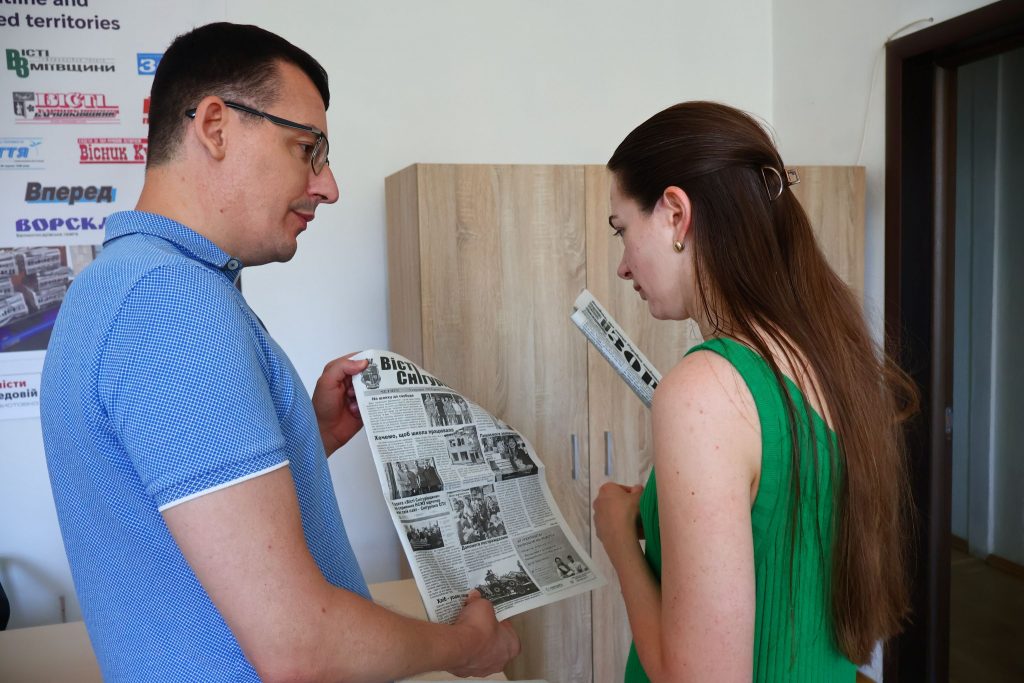
The lawyer also touched on such a sensitive topic as violations in the Ukrainian army. She noted that there are no perfect armies in the world, so deviations from the rules happen everywhere. However, Ukrainian servicemen whose rights have been violated have the opportunity to turn to Ukrainian journalists to highlight these issues and seek justice.
“The authoritarian regime fell in Ukraine only nine years ago. We still have a lot to do so that the army and other state institutions act according to the law and respect human dignity. But we are on the right track,” she said.
As a specialist who has been working in the field of human rights protection since 2007, Oleksandra Matviichuk sees significant positive developments in this area. On the other hand, she points out; we have very ambitious goals: “We understand that our generation has a historical responsibility. Therefore, we must complete the democratic transformation and not pass this task on to our children.”
She told the story when she came to Oslo for the Nobel Prize ceremony. She was met by a specially assigned guard near the plane. This made the Ukrainian woman laugh, who came to safe Norway from Ukraine, where people die every day at the hands of the russian occupiers.
“What threat can await me, a person who lives in Kyiv, here in Oslo? I stayed here in February – March 2022 when Russian troops tried to encircle Kyiv?! I’m a person who is tired of going to the bomb shelter and therefore sleeps in the corridor?… We never know which house will be hit by a Russian missile,” she stated.
When the bodyguard escorted Oleksandra to the plane before returning to Ukraine, he said she would probably need him more in Kyiv…
Leaving aside the jokes, the lawyer became serious again. She said: “I am an ordinary person.” Many Ukrainians did not know her name before receiving the Nobel Peace Prize award because human rights defenders are not celebrities like sports stars or artists.
Oleksandra stressed: “Any awards that Ukrainians are currently receiving are, first of all, a responsibility. This opportunity must be used to reduce the deaths of people at the front, in the occupied territories, and in the rear.”
“This award made the voice of human rights defenders heard. Before that, our reports were sent to all international organizations for eight years. We said that people under Russian occupation live in a “gray” zone; they have no way to protect themselves, their freedom, their rights, or their closest relatives. But we were not heard. A full-scale invasion was the first moment our opinion started to draw interest. And the Nobel Peace Prize opened the door for us to the halls where decisions are made,” Oleksandra said.
She shared her plans for the future, including personal ones.
“I always wanted to have children,” she admitted. “But I postponed motherhood for a long time because I have been studying cases of people who survived torture for nine years. It seemed to me that it was irresponsible and could affect the future child’s health. But when the full-scale invasion began, I suddenly realized I might not have a tomorrow. So, maybe I’ll come back to this issue in the near future. Because we never know how much time we have…”
Finally, Oleksandra formed a kind of manifesto of the Ukrainian nation today:
“We want to survive. We need guns to defend ourselves, our country, our freedom, our people, and our democratic choice so that our children live in a peaceful and democratic state.”
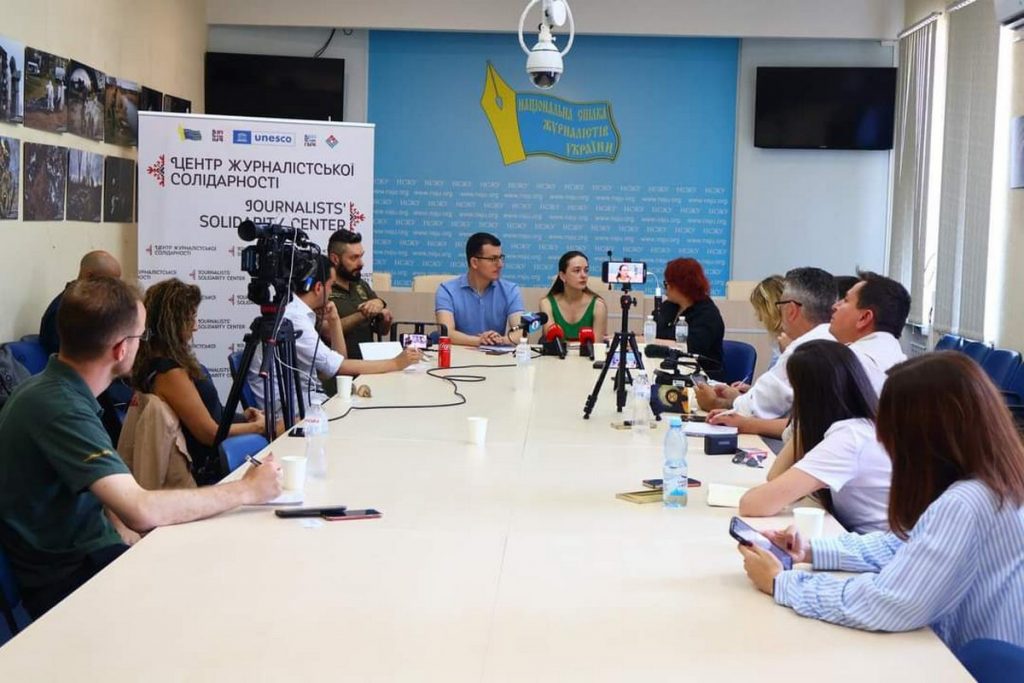
Prepared by Liudmyla Makei

 THE NATIONAL UNION OF
JOURNALISTS OF UKRAINE
THE NATIONAL UNION OF
JOURNALISTS OF UKRAINE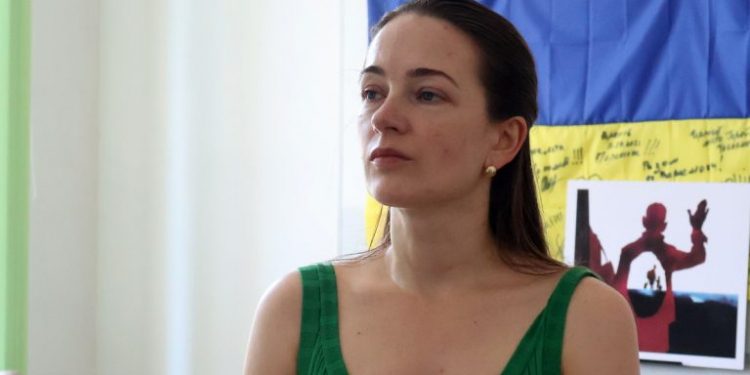
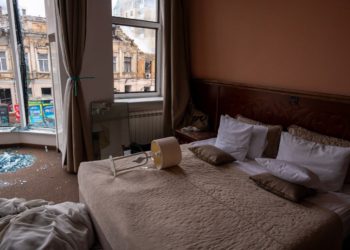
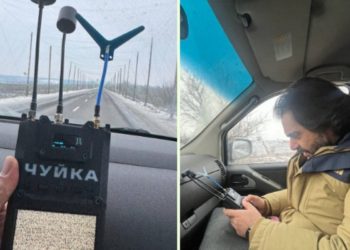
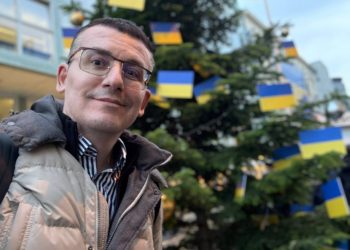













Discussion about this post